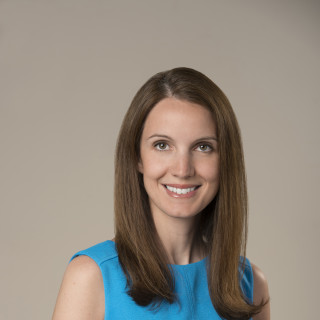
Have you ever thought about writing a book? Do you have a story to tell or information to disseminate to patients? If so, you may have been a great fit for the 2018 Harvard Writing, Publishing, and Social Media for Healthcare Professionals Conference.
Who was attending? Mostly physicians, but also psychologists, nurses, sociologists, LCSW, etc.
One of the best features of the course was the networking opportunities. There are numerous agents/editors/writers who were there to give advice about physician writers’ ideas. It was a very-forgiving environment and they understood that many physicians are unclear about how to navigate the writer’s world and how to publish a book.
The advice was honest and straightforward. This course attracts top notch people who are willing to sit in a chair all day long listening to pitch after pitch of different ideas from physicians. They are engaging and helpful and you wouldn’t want to miss the opportunity to get their feedback, even if you haven’t gotten very far with writing the book. A writer’s conference is naturally full of introverts, but with the atmosphere here, even the most shy of personalities were taking advantage of the networking opportunities.
I give credit to the course director, Dr. Julie Silver, for setting the tone of the conference at the very beginning. It was a high energy, friendly, and collaborative atmosphere throughout the event. I can’t remember a prior conference where I didn’t want to leave my seat (for fear of missing out on something). I felt torn at times with having to choose between sitting in a lecture or getting a chance to meet with each of the agents/editors/writers I wanted to. However, perhaps having to choose between two equally-valuable options is a good problem to have.
Of course, the networking was also occurring with fellow attendants of the course. Ideas were exchanged, collaborations created, and platforms expanded.
Some people I was happy to meet/connect with in person (check out their work):
- Dr. Heather Sher: What I Saw Treating the Victims From Parkland Should Change the Debate on Guns
- Dr. Jeremy Topin: My patient was 25, and I knew she was dying. How could I tell her?
- Dr. Dana Corriel: drcorriel.com
- Dr. Joannie Yeh: betamomma.com
- Dr. Hansa Bhargava: https://www.webmd.com/hansa-bhargava
- Dr. Linda Girgis: http://drlinda-md.com/
Social Media
Something unique about this course is the focus on social media for physicians. This is new for many physicians, but there is no longer anyone denying the impact social media can have for relaying a message and giving a voice to a subject you are passionate about. There is even a hashtag for the course, #Harvardwriters2018, if you want to join the conversation with other physicians attending the course, or who plan to go next year. See what others are saying about it.

Physicians are beginning to take control of their digital footprint (because we all have one, whether we want one or not). In addition, having a “platform” was stressed throughout the course and the importance of building your connections through twitter or other social media outlets was a big topic. Social media “experts” were also available throughout the course to help with everything from starting a twitter account to auditing your existing social media presence. Ultimately, we learned that having a platform was important to get a book traction after its published, but also to attract potential agent/editors to be interested in the first place.
If I had to do it over again, I would have signed up for the elevator pitch session in addition to the writer’s workshop. This would have given me a chance to pitch to the agents/editors in front of large audience. I know this doesn’t sound fun, but it is an extremely valuable exercise. It was an additional cost for the pitch session, and I didn’t know that my book was developed enough to take advantage of this, but I would encourage anyone who even has an idea still being formulated before the book is written to do this. All attendees could watch the pitches, so you still learn from what everyone is doing, but you need to sign up for the session to get individual feedback and help developing a pitch.

The schedule is listed below for details about topics covered:
Day 1:
Understanding the dynamic publishing industry
Writing a nonfiction book proposal
Short stuff: crafting compelling blogs, blurbs and bios
Writing powerful prose in narrative nonfiction and memoir
Panel discussion with Literary agents and Editors
Introduction to self- publishing
How to use elements of memoir writing in narrative nonfiction and self-help books
Optional
A -Developing Oral book pitches and elevator pitches
B- Writers workshop
Day 2:
Publishing thought leader articles
Advice from previous course participants: success stories
Making English Move
How to get your message out in today’s changing media environment
Narrative writing in healing: the power of stories
From draft to craft: writing books that heal
Finding your narrative voice
Elevator and oral book pitches
Day 3:
How to effectively use social media to get meaningful results
Publishing is changing the way medicine is practiced
A plan to get your work published this year
Optional boot camps
3 hour courses diving deeper into some of the above topics (several options)
In summary: great location, faculty, and content. There was also a friendly atmosphere and fantastic networking opportunities. People who have started writing a book will likely get the most out of this conference, but there is something for everyone — including those just developing book ideas, to someone who already has a book completed and needs to know what to do next.







